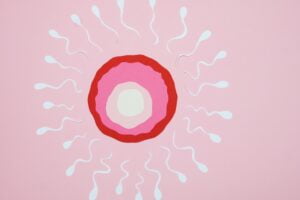A fertilised egg is the start of a pregnancy. Normally, the fertilised egg sticks to the uterine lining. When a fertilised egg implants and grows outside the main cavity of the uterus, it is called an ectopic pregnancy. The most common site of an ectopic pregnancy is the fallopian tube, which transports eggs from the ovaries to the uterus. Tubal pregnancy is the name for this form of ectopic pregnancy.
Ectopic pregnancy can happen anywhere in the body, including the ovary, abdominal cavity, or the lower section of the uterus (cervix), which links to the vagina.
An ectopic pregnancy will not be able to continue normally. If left untreated, the fertilised egg will die, and the developing tissue will cause life-threatening haemorrhage.

Symptoms and signs of Ectopic Pregnancy
The majority of ectopic pregnancies occur in the first few weeks of pregnancy. You may not even be aware that you’re pregnant or that you’re having troubles.
The following are early indications of an ectopic pregnancy:
- Pelvic discomfort and light vaginal bleeding
- Vomiting and an upset stomach
- Abdominal pains that are severe
- You are experiencing pain on one side of your body.
- Weakness or dizziness
- You’re experiencing pain in your shoulder, neck, or rectum.
Your fallopian tube may burst or rupture as a result of an ectopic pregnancy. Major pain, with or without substantial bleeding, is one of the emergency symptoms. If you experience significant vaginal bleeding with lightheadedness, fainting, or shoulder discomfort, or if you have severe abdomen pain, especially on one side, call your doctor immediately.
Causes and Risk Factors involved in Ectopic Pregnancy
It’s possible that you’ll never know why you had an ectopic pregnancy. A damaged fallopian tube could be one of the causes. It may prevent the fertilised egg from reaching your uterus.
If you have pelvic inflammatory disease, you’re more likely to have an ectopic pregnancy (PID)
- Cigarettes are smoked.
- Are you over the age of 35?
- Have you contracted a sexually transmitted infection?
- Are you scared after a pelvic surgery?
- Have you ever had an ectopic pregnancy before?
- Tubal ligation (tubes tied) or tubal ligation reversal were attempted.
- Fertility medications are used.
- In vitro fertilisation and other fertility therapies were used (IVF)
It’s also possible if you get pregnant while using an intrauterine device (IUD) as a birth control method.
Treatment option for Ectopic Pregnancy
Since a fertilised egg cannot survive outside of the uterus, your doctor will need to remove it to avoid significant health complications. One of two approaches will be used: medicine or surgery.
Medication
Your doctor can give you a dose of methotrexate if your fallopian tube hasn’t ruptured and your pregnancy isn’t far along (Trexall). It prevents the cells from multiplying. They will be absorbed by your body.
Surgery
In some circumstances, surgery will be required. Laparoscopy is the most common procedure. To remove the ectopic pregnancy, your doctor will make very small cuts in your lower belly and insert a thin, flexible tube called a laparoscope. They may have to remove your fallopian tube as well if it is damaged. If you’re bleeding heavily or your doctor detects a ruptured fallopian tube, you may need emergency surgery with a larger cut. Laparotomy is the medical term for this procedure.
What happens after Ectopic Pregnancy
Depending on the therapy and the condition of your fallopian tubes, most people who have had an ectopic pregnancy can have healthy pregnancies in the future. It may be more difficult to conceive if one of your fallopian tubes has been removed or if your tubes are scarred. You’re more likely to have another ectopic pregnancy if you’ve already had one.



